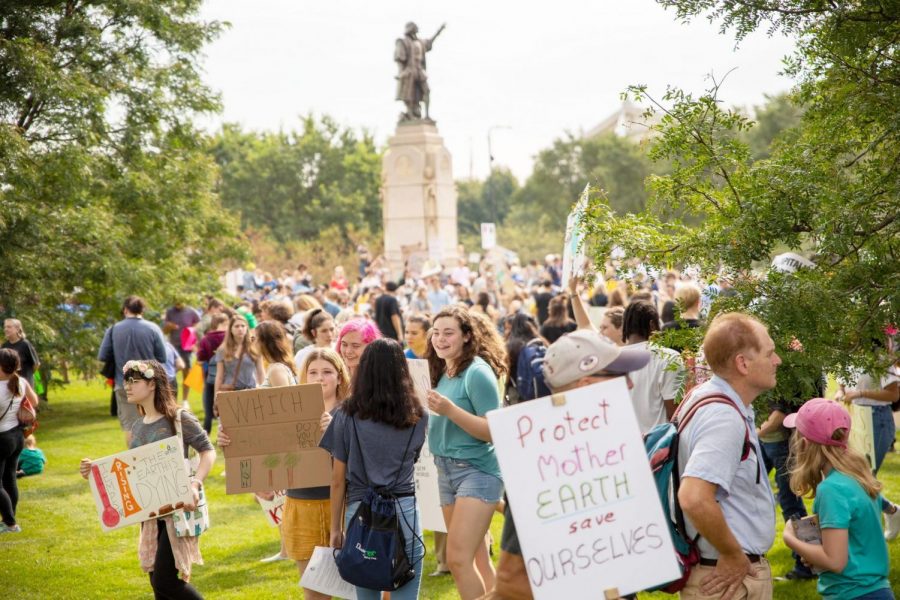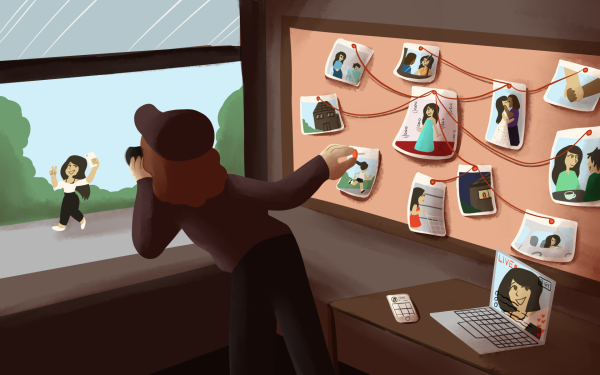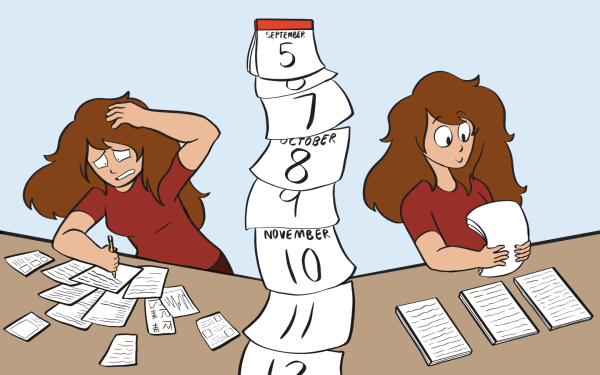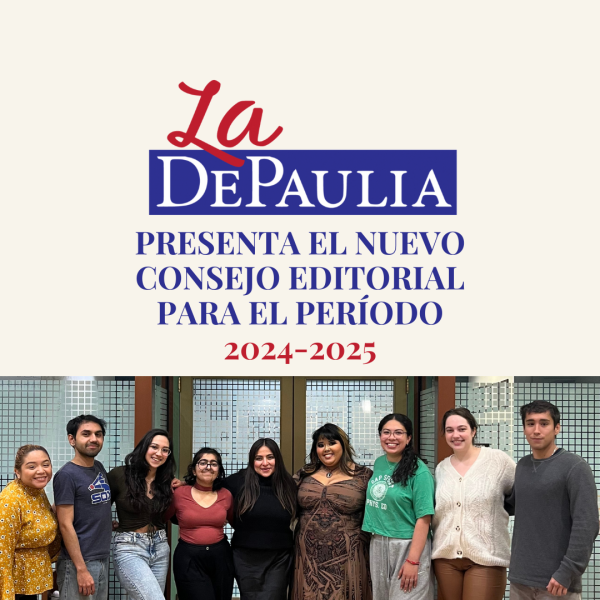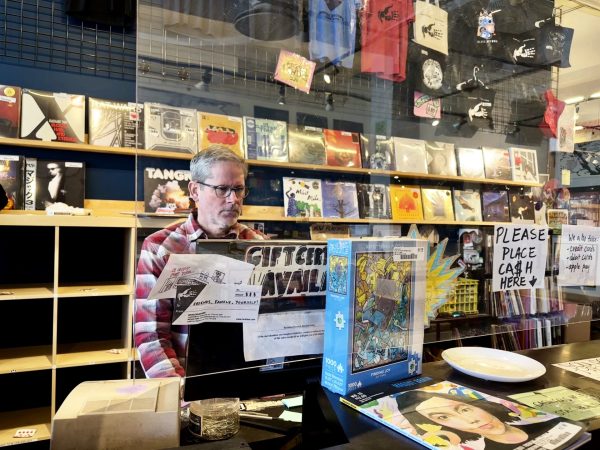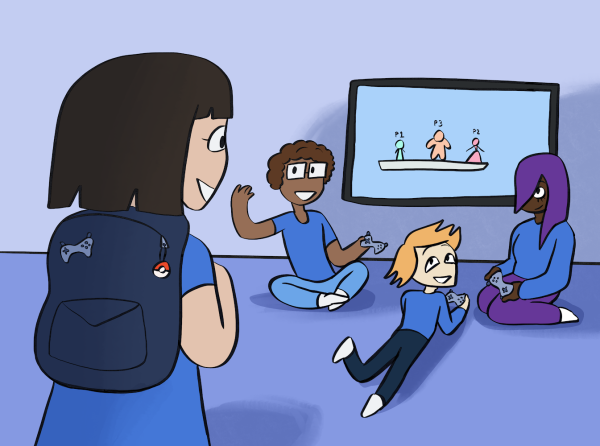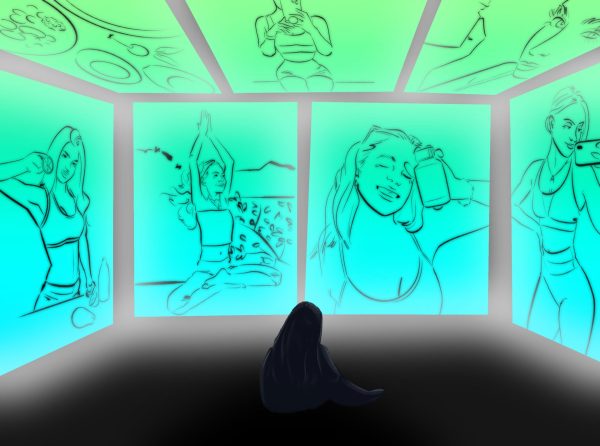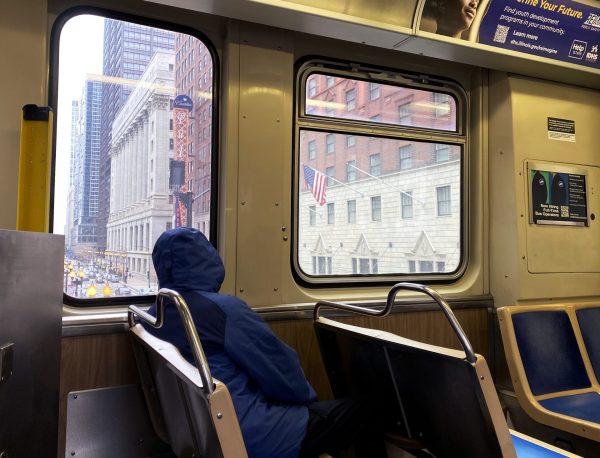OPINION: It’s time for DePaul’s administration to care as much as students do about sustainability
Jonathan Aguilar / The DePaulia
Protestors for the Youth Climate Offensive gather in Grant Park before a march to the Federal Plaza.
I like to think of myself as relatively green thinking. I recycle whenever I can. I like to choose brands that follow environmental ethical codes of conduct, whenever economically feasible. However, I have always shied away from actively joining the conversation and acting to reverse the damage that has been done.
Taking on such a daunting task has always intimidated me. I never felt that I had time to properly educate myself on the depth of the problem. I didn’t make time to form an opinion other than “climate change is bad.” Like so many other students at DePaul, I’m a double major trying to balance school and a demanding internship.
I’ve been relying on politicians to make the needed changes that will save my future. I’ve been relying on DePaul to follow our Vincentian values and help sustain our community. I’m done waiting. You should be too.
A good place to start enacting change is by educating yourself. Many professors on campus care deeply about this cause and want to make DePaul a better place. For example, Sarah Richardson, a professor of biology, takes her classes around campus, looking at species of trees and insects.
“One thing I’d like to see that they’re not doing is planting more native plants,” she said. “Native plants will support native insects and that will support more birds.”
James Montgomery, a professor of environmental science and studies at DePaul, worked on The Sustainability Initiatives Task Force over a decade ago to produce a proposal to make DePaul more sustainable. The proposal was officially announced in 2011, but nothing changed.
“It’s just been collecting dust,” he said. “And that has been the most disappointing part for me.”
There have been strides on campus to improve sustainability. The Facilities and Operations department partnered with DePaul’s Student Government Association to add solar panels to the roofs of two buildings.
This year, DePaul’s dining centers have partnered with Lakeshore Recycling Company, which allows both campuses’ dining centers to compost kitchen scraps and leftover food. Now it’s up to us to use it.
However, a lot needs to change. Other universities sell reusable mugs that students can purchase to reduce waste in dining centers. When asked about the waste produced in the dining centers, Mark Little, resident district manager of DePaul’s Chartwells, avoided the subject and instead questioned me on what waste I was referring to and whether the dining halls are inherently wasteful.
Every plastic straw, to-go container and single-use coffee cup adds up. Their production, transportation and disposal all negatively impact our community. That’s a huge impact. It is not okay for the people in charge of making an impact to ignore this or make students feel uneducated when they question the system.
So many students are already reluctant to talk about environmental issues due to lack of time, knowledge or vision on what campus could look like. We need people in charge of our university who take this seriously and be willing to work with us to help us with our civic duty to help our community.
There is so much change that needs to happen. It doesn’t matter where you start, it just matters that you find time to start. There are several opportunities for students to work with others and educate themselves. Professor Barb Willard is helping educate students by teaching sustainability classes in the College of Communication.
“Really, where we can make the most impact is in our own community,” Willard said. “If people really care about this and they’re in the DePaul community, then get active.”
DePaul Urban Farming Organization is a student-led initiative to bring sustainable practice to whoever wants to join them. Every Wednesday evening and Saturday morning, a group of volunteers work to harvest, plant and maintain a garden no one knows about.
The opportunity to educate yourself on sustainable practices is sitting across the street from Wish Field. Students teach each other not only how to plant, grow and harvest their own crops, but the importance of growing and buying locally.
Senior Lauren Paris is the co-president of DePaul’s chapter of Climate Reality Campus Corps. The organization works tirelessly to get administration to listen to serious concerns students have about sustainability at DePaul. They encourage students to use #WhatAboutDePaul and vocalize administrative changes they’d like to see.
“This is hard work,” Paris said. “Serious sustainability, we’re not just talking about recycling, but more so renewable energy or where we are getting our food.”
Neither students nor professors have time to figure out who can make this change happen. There needs to be a full-time sustainability coordinator to do this for us. That is exactly what Paris and Campus Corps are working to achieve.
It is hard work, and it takes time. Students need to decide whether they care enough about their future to make it a priority. These are suggested starting points for action. There are so many places out there to find information and make a difference. This is what must be done, so go out and do it.


